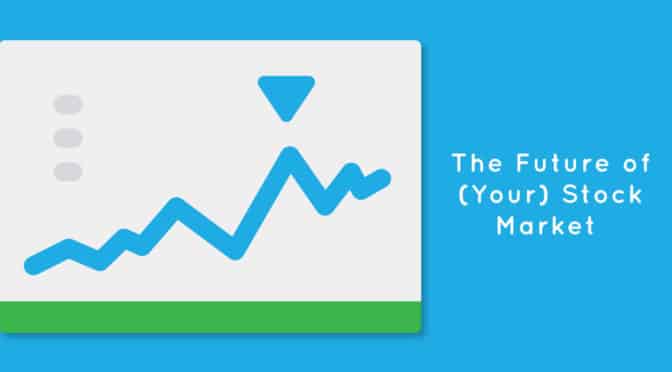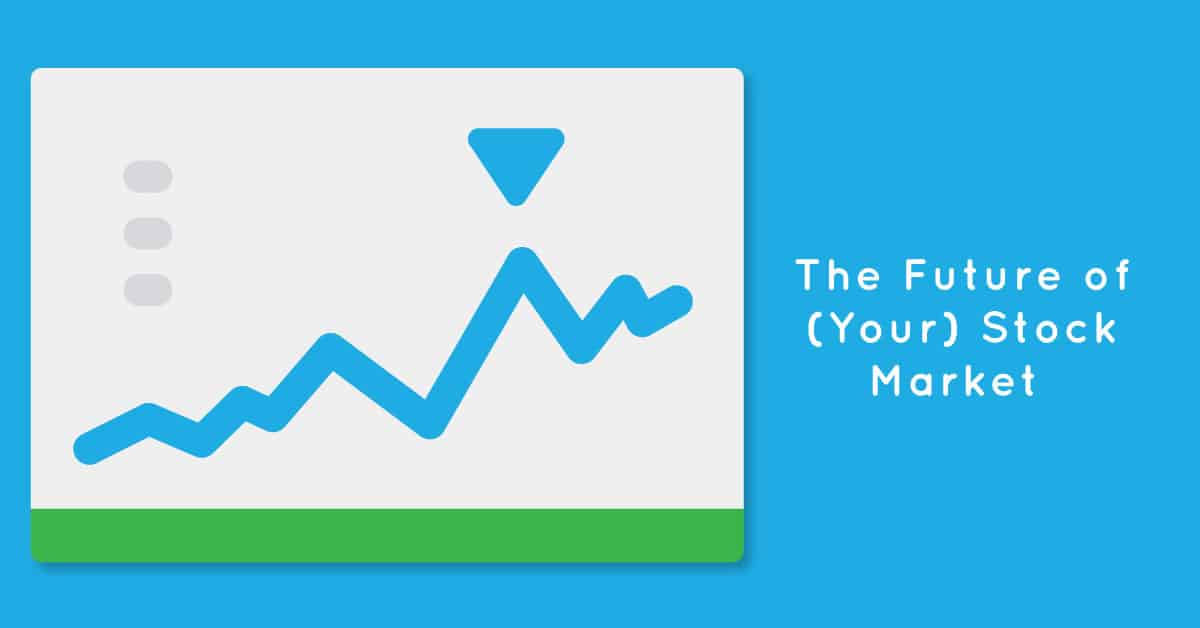Let's Get Started
You'll get the most value from financial planning if your specific goals and needs match a firm's philosophy and services. Let's learn more about each other.
Ready to Get Started?


The short-term ups and downs of the stock market don’t matter nearly as much as your personal goals for the money.
Your investment strategy should match your time horizon—stocks for long-term goals, safer accounts for near-term needs.
Aligning your risk tolerance with your goals and timeline ensures you can stay invested and reach your objectives without losing sleep.
We’ve had a rough month or so in the stock market, with more ups and downs (or what we call “volatility” in market lingo) than we’ve experienced in the past couple years. I don’t normally do an “investment newsletter” for my clients, because I think they’re boring to read and have little actionable advice for my clients. I stand by that decision to never write an investment newsletter, but I do want my clients and friends to know my philosophy on long-term investing and thus give you permission to ignore what’s going on in the market.
I propose we can predict the future of your stock market. Not the big, old stock market that’s tracked by such catchy ditties as the Dow Jones and S&P 500—it would be idiotic to try to predict that market over time, and you should be extremely wary of anyone who says she can do so. No, I mean your personal stock market—the money you’ve invested by buying stocks (and bonds!) and mutual funds, with the intent to trade those assets again at some point in the future, hopefully for a gain, and for doing something with that money.
You see, I can predict that future by looking at three factors of your investing: your goals, your time horizon, and your appetite for risk.
You need some objective for your savings and investments. Most people pick retirement, but anything that requires money is valid, such as buying a home, sending your kids to college, or starting a business. The only reason retirement is such a pressing goal for most people (or should be) is that you normally don’t earn much for wages during retirement—you have to live on what you’ve saved up.
Without clearly articulated goals, there’s no sense in worrying about the future of your investments, if they go up or down. You don’t know what you need the money for, who cares how it performs?! It’s like when we have a big snowstorm in Iowa. I’ll get nervous if I have a commitment involving travel, but if there’s no need to leave the house (no goal), who cares how much comes down—the snow is rather beautiful! Start with your goals for money in the long term, and that will help us predict your investing future.
For any money goal you have in the next few years, stay out of the stock market, and keep your money in someplace earning the best (meager) interest you can, like a high-yield savings account. For every goal longer than a couple years out, you’re likely going to need the returns that bonds and stocks provide in order to meet your goal. Remember, start with your goal in mind, figure out how much you can save towards that goal, and that will tell us how much you need to try to earn for gains in the market.
When you’re investing you’re doing it for a long time. And long-term commitments have their own logic. One of my favorite investing maxims is: the right time to invest in the stock market is when you have the money, the right time to sell is when you need the money.
Did you catch that? You invest now because you have the money, and you sell later because you need the money (plus gains!) back. You don’t sell because you want to make a killing on a soaring Dow. You don’t sell because you’re scared of a plummeting Dow. You sell because you need the money back (that is, you have a goal to pay for).
We got lazy with the markets in 2017 because all the major benchmarks were up 20% or more. But it’s EXTREMELY normal for markets to go down, and 5% drops usually happen a couple times per year.
When you focus on a long time horizon, all this noise goes away. Losses in the short term are irrelevant. We can predict the future of your personal stock market because we know that historically stocks have produced better returns than almost every other kind of investment.
Once you have your goal figured out for your money, and you have established that it’s going to take you 10, 20, 30 or more years until you need the money, then we can align your risk with that need. The primary way we figure out your appetite for risk is by thinking about it and asking some questions. I’m serious! When I go through this process with clients, it’s a conversation, with a risk tolerance questionnaire in hand (I’ve been using Vanguard’s excellent questionnaire lately). You have to be comfortable with the risk you will need to take with your money, you have to be able to “sleep at night”, as the old investment chestnut goes.
We don’t take any more risk with your investments than is necessary in order to fund your goal. If the level of risk is too high for you to stomach, we either adjust the goal amount or your time horizon. Simple, eh? When I say “risk”, I mean the combination of relatively risky stocks and relatively risky fixed-income investments (like bonds). We’re not talking about Bitcoin investments! This mix of stocks and bonds can be measured and used to predict what kinds of growth in your money you’ll see over 10, 20, 30 or more years.
When you articulate your financial goal, figure out the (long-term) time horizon, and align your risk with that need, you will hit your goal. That’s what I can predict for you and assure you of, rather than telling you anything about the crazy ups and downs of a manic global stock market.
I hope these stock market antics are not causing much anxiety in your life. If so, don’t hesitate to give me a call. We’ll focus on your plan, which is the thing you can control and has a more real impact on your life than the stock market ever will.
Quinn worked for nineteen years in HR consulting and corporate finance before realizing he wanted a more direct way to help people improve their lives. When he's not working with clients, you’ll probably find him tag-teaming the work of raising two boys with his wife, Brie. If there’s time left over, he'll be catching up on the Netflix queue or reading his way through an ever-growing stack of books. As a flat fee advisor for Arnold and Mote Wealth Management, Quinn is a CFP® Professional and member of NAPFA and XY Planning Network. Arnold & Mote Wealth Management is a flat fee, fiduciary financial planning firm serving individuals and families in Cedar Rapids and surrounding areas.